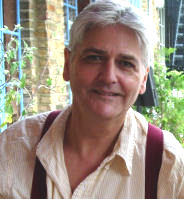Cognitive Mapping and Radio Drama by Alan Beck - Consciousness, Literature and the Arts, Volume 1 Number 2, July 2000
also at http://blackboard.lincoln.ac.uk/bbcswebdav/users/dmeyerdinkgrafe/archive/cog.html
Glossary
Aurality (radio):
(author's term) Part of core theory for radio. 'Aurality', matches film's 'specularity'. It has three aspects: the 'listening-to-ness' of radio reception, the 'heard-of-ness' of the broadcast speaker and other sound events on radio, and listening in itself.
Domain (radio):
(author's term) Term for each of the different categories of sound on radio which are key organisers of both form and content: the vocal, sound effects, atmoses or different conditions of ambience, music, noises from nonsentient objects, silences.
Extra-radio world:
(author's term) The world to which listeners have access through production and broadcast. This is the equivalent of film's 'pro-filmic event' and the 'extra-cinematic world'. See referentiality.
'Mise en scène' (adapted from film and stage scenography):
Locations, spaces and perspectives for all genres of radio, but also including style and mode (as realism, non-realism, etc.). For radio drama, this involves representation of the play scene, its composition, 'set dressing' and perspective, and the characters' behaviour in that environment and style.
Referentiality:
(Fiction) The act of making reference to an extraneous world believed to exist independently outside the realm of the fiction. The reader 'concretizes' the text in his or her mind and this is the final stage of the text's reception.
(Language) The relationship between language and what it designates - non-linguistic reality (objects, events, actions, qualities).
Standard production:
(author's term) Convention-bound radio drama directing style with limited use of radio's features. It successfully enables budget-controlled studio production: linear continuity of plot, dialogue- and protagonist-dominated, dialogue mostly in positions two and three, and strictly foregrounded above SFXs. Overall, a much plainer style - neutral acoustic or near-neutral (living-room) is common.
See Standard production (predominant style in realist radio plays) on RADIO DRAMA SITE

Academic material on this site is  Alan Beck
is licensed under a Creative Commons Attribution-Non-Commercial-Share
Alike 2.0 UK: England & Wales License.
Alan Beck
is licensed under a Creative Commons Attribution-Non-Commercial-Share
Alike 2.0 UK: England & Wales License.
See more of Alan Beck's work.
To the WELCOME PAGE for Alan Beck's site.
Learn about radio drama on this site along with my book - Beck, Alan, Radio Acting, London: A & C Black ISBN 0-7136-4631-4
Available on Amazon. CLICK HERE.
Any opinions expressed in this site are the personal opinions of the owner of the site. IF YOU HAVE COMMENTS, PLEASE EMAIL TO : [email protected]
